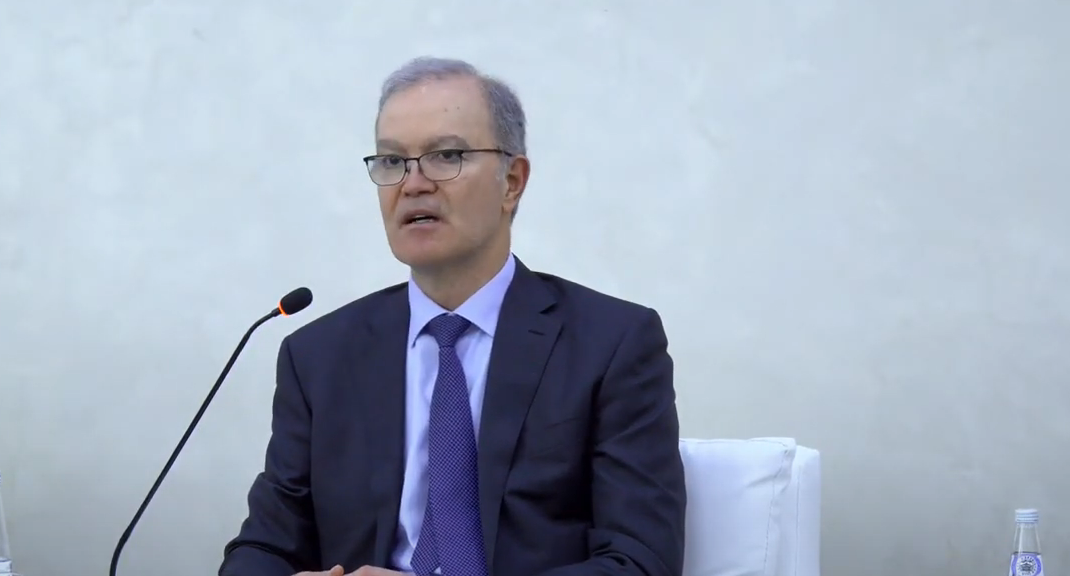BAKU, Azerbaijan, May 2. Direct impact of the U.S. tariffs on the South Caucasus and Central Asia is going to be relatively limited, Thanos Arvanitis, Deputy Director of the IMF’s Middle East and Central Asia Department, said, answering Trend's question during a briefing.
“Clearly the trade tensions that we saw earlier in April has created a lot of uncertainty. Direct impact of the U.S. tariffs on the Caucasus is going to be relatively limited, because the export exposure of these countries to the U.S. is relatively small and also energy products, oil, gas, are exempted from the tariffs. Therefore, the non-oil, the non-energy exports from these countries to the U.S. is very small and a 10% base tariff is not going to have such a big impact on the economies in the Caucasus and Central Asia,” he said.
However, as Arvanitis noted, countries also need to be mindful of the indirect effects, which would come mainly from three channels.
“One is that these trade tensions would have an impact on global growth. And this would affect growth in some of the major trading partners of the Caucasus and Central Asia. Therefore, by these countries slowing down, it would have an impact on also the economies of the Caucasus and Central Asia. The second channel is going to be through the financial volatility. Financial markets have been very volatile. And I think one of the issues that countries need to be mindful is, of course, of the increase of the funding costs. The spreads on the borrowing of emerging markets and also of countries from this region have increased. This greater uncertainty would affect our countries is through the financial markets,” said the IMF representative.
He went on to add that the third channel is going to be through commodity price volatility.
“Here we have seen some of that. We have seen that oil prices have declined by about 15% since earlier in the year. And this oil price decline would have a differential impact, depending on whether you are an oil importer or an oil exporter. Certainly, it would benefit oil importers, but also would have an adverse impact on oil exporters. On the other hand, other commodities, gold in particular, we have seen reaching historic highs. Therefore, countries that are producing gold, including Uzbekistan, but also other countries in the region, would benefit from this high gold price. So, one needs to see not only the direct impact, but also needs to see the indirect impact from various channels to make an assessment about how these countries could potentially be affected,” noted Arvanitis.
Nonetheless, he said one needs to keep in mind that the trade negotiations are ongoing, that there are discussions between countries to actually find ways to resolve the uncertainty and to find what would be more the permanent solution to this.







